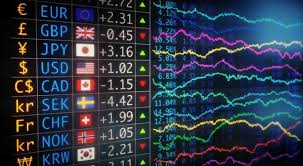The Ultimate Guide to Forex Trading Strategies, Tips, and Tools 1641166782
10Line Loto oyununda larnaların gecmisi
27/10/2025Mastering Forex Trading with Modern Apps
27/10/2025
Forex trading, also known as foreign exchange trading, is the process of exchanging one currency for another in the global marketplace. This form of trading is considered highly liquid and accessible, making it popular among individual investors and professional traders alike. For those interested in diving deeper into this dynamic world, resources like forex trading acev.io can provide valuable insights and tools.
Understanding Forex Trading
Forex trading operates on a currency pair system, where one currency is traded against another. The most commonly traded currency pairs include EUR/USD, GBP/USD, and USD/JPY. These pairs imply that traders can speculate on the value of one currency relative to another. Such trading occurs 24 hours a day across global markets, making it highly flexible and appealing.
How Forex Trading Works
The Forex market is decentralized and operates through an electronic network of banks, brokers, and traders. Prices are determined by supply and demand, influenced by economic indicators, geopolitical stability, and market sentiment. Traders use various tools and analysis methods to predict market movements and capitalize on changes in currency prices.
Types of Forex Trading
There are several forms of Forex trading, including:
- Day Trading: This strategy involves opening and closing positions within a single trading day, aiming to profit from short-term price movements.
- Swing Trading: Swing traders hold positions for days or weeks, taking advantage of broader market shifts and trends.
- Scalping: This fast-paced trading style aims to make small profits from numerous trades throughout the day.
- Position Trading: This long-term strategy involves holding positions for weeks, months, or even years, focusing on the fundamental analysis of currency strength.
Key Strategies for Successful Forex Trading

To become a successful Forex trader, one must equip themselves with effective strategies. Here are some of the most popular:
1. Technical Analysis
Technical analysis involves studying charts and price patterns to predict future price movements. Traders use indicators such as moving averages, MACD, and RSI to determine entry and exit points based on historical data.
2. Fundamental Analysis
This strategy focuses on economic indicators, news events, and geopolitical events that could impact currency values. Understanding how economic data, such as GDP growth or employment rates, affects a country’s currency can help traders make informed decisions.
3. Sentiment Analysis
Sentiment analysis gauges market sentiment to determine whether traders are feeling bullish or bearish about a currency pair. This can play a significant role in decision-making, as extreme levels of optimism or pessimism can lead to market reversals.
Risk Management in Forex Trading
In Forex trading, managing risk is crucial. Even experienced traders can incur losses, so employing effective risk management strategies is essential. Here are some key principles:
1. Use Stop-Loss Orders

Establishing stop-loss orders can automatically close a position once it reaches a predetermined loss level, minimizing potential losses.
2. Diversify Your Portfolio
Avoid concentrating all your investments in one currency pair. Diversifying across different pairs or asset classes can reduce overall risk exposure.
3. Manage Leverage Wisely
While leverage can amplify profits, it can also exacerbate losses. Traders should use leverage cautiously and ensure they set sufficient margin to cover potential risks.
Choosing a Forex Broker
Finding the right Forex broker is a critical step for any trader. Here are some factors to consider:
- Regulation: Ensure your broker is regulated by a reputable financial authority to protect your investment.
- Trading Platform: A user-friendly trading platform with a range of tools and features can enhance your trading experience.
- Fees and Spreads: Understand the broker’s fee structure and spreads, as these can impact your profitability.
- Customer Support: Reliable customer support is crucial for resolving issues that may arise during trading.
Conclusion
Forex trading presents endless opportunities for those willing to learn and adapt. By understanding the market dynamics, employing effective strategies, and practicing sound risk management, traders can navigate the complexities of Forex trading successfully. Continuous learning and utilizing resources such as acev.io will empower traders to enhance their skills and potentially achieve their financial goals in the Forex market.
